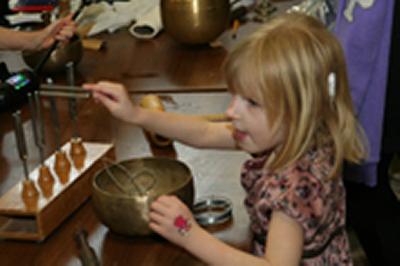Southampton’s cochlear implant centre celebrates 21 years of providing life-changing technology

The South of England Cochlear Implant Centre (SOECIC), based at the University of Southampton, which provides life-changing technology for children and adults with severe to profound hearing loss, celebrates its 21st birthday this weekend.
On Saturday 28 January, over 250 guests, young and old, will be celebrating at the University’s Staff Social Centre from 11.30am to 2.30pm.
The SOECIC was established in 1990 and since then over 800 severely to profoundly deaf adults and children across the South of England have obtained a new sensation of hearing with their cochlear implant. The Centre currently carries out over 100 cochlear implant surgeries a year.
Julie Brinton, Joint Head of the Centre, says: “I am so pleased that so many of the adults and children implanted at the centre over the past 21 years are able to attend the celebration on Saturday. We know we can really make a difference to people’s lives and it will be wonderful to see young and old alike chatting, singing and having fun this weekend.”
A cochlear implant is an electronic device that provides a sensation of hearing for adults and children who have a severe to profound hearing loss, and who cannot obtain useful benefit from conventional hearing aids. It has two parts: an internal receiver/stimulator package and electrode array, and an external speech processor that looks like a hearing aid. The device uses small electrical currents to directly stimulate the hearing nerve, which then sends signals to the brain where they are interpreted as sound.

Michael Peake from Southampton, who was implanted in 2000, has taken on more responsible roles at work. He says: “It has given me back a large amount of confidence, which I had lost when I went deaf. It has also stopped the feeling of isolation.”
Marion Evans from Surrey received her cochlear implant earlier this year. She says: “I have only had my implant a short while - switch on was in June, but already my life has improved so much. Music has always played a big part in my life, but as my hearing deteriorated my enjoyment was much curtailed. However, in December my husband and I went to a Christmas concert in St. Martins in the Fields and this time I could even join in the singing besides hearing all the words sung by the choir.
“This is on top of finding socialising so much easier and enjoying large crowds to feed in my home, which makes it easier for my friends too. I am so delighted with the implant but also my whole experience with SOECIC.”
The Centre is situated within the Institute of Sound and Vibration Research at the University of Southampton, providing a perfect location for high-quality research. Centre staff frequently present papers at national and international meetings, and work is published in peer-reviewed journals. ISVR was awarded a 2006 Queen’s Anniversary Prize for Higher and Further Education.
Watch a video of the celebration here.
Notes for editors
- The ISVR South of England Cochlear Implant Centre assesses the benefit that patients could derive from a cochlear implant, arranges for the surgical implant to be carried out and then trains the patient to use the system over a period of about a year.
Rehabilitation is required after implantation to promote optimal benefit from the device, especially in the case of young children who may never have heard before. Younger and younger patients, some as young as 12 months old, are receiving implants, since these children get the greatest benefit from the device by learning to use it at a critical period in their development.
- The ISVR South of England Cochlear Implant Centre is based in a £6 million purpose-built facility on the University’s Highfield Campus, which was opened by HRH the Earl of Wessex in 2008. The facility provides specialist clinical facilities and new laboratories for ISVR’s cochlear implant centre and research related to human responses to sound and vibration, areas in which the University has an excellent global reputation.
- The Institute of Sound and Vibration Research (ISVR) at the University of Southampton is Europe’s leading centre for research, teaching and consultancy in sound and vibration. For over 40 years the Institute has worked on the interface between technology and humans, playing a major part in making aircraft quieter, developing more efficient cochlear implants for people with hearing loss, and improving sound systems.